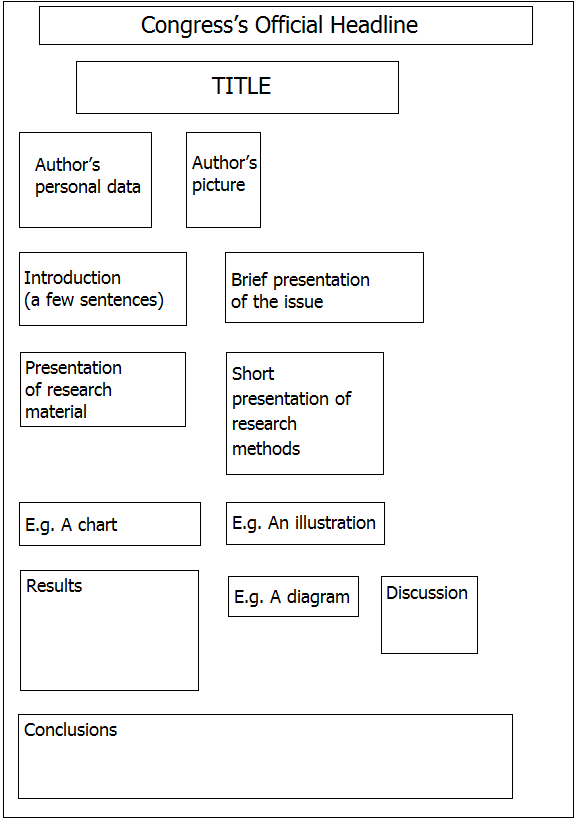About the Congress
Registration is closed
Applications for the Congress should be sent till 15th August 2014.
 Download the Registration Form
Download the Registration Form
- The Congress's participants are scientific scholars and teachers of various scientific disciplines and experienced professionals who deal with widely understood European issues.
- The Fees for participation in the Congress are:
- Independent scholars (Senior Professors, Professors /Readers/) and non-academic participants: 100 EUR./400 PLN,
- Assistant Professors: 90 EUR./350 PLN,
- Ph.D. students and junior members of University Staff: 65 EUR./250 PLN,
- Students: 25 EUR./100 PLN.
- The fee guarantees participation in panels and the poster session, two lunches, dinner, coffee breaks - two days, entertainment time, expertise. Lunch, coffee break - one day, ceremonial dinner, publication of a paper if accepted by Congress's Program Council, and Congress materials (Congress Publication, Information Brochure on the Congress's participants and sponsors) - .fund sponsors
- Accommodation for the Congress participants is not included in the fee. However, the Organizer has prepared an offer of hotels classified as tourist, standard and comfort. The offer is available here. To book a room we ask you to contact the hotel reception. The booking should be done between 2nd January and 15st August 2014 for hotels: START Hotel ARAMIS, START Hotel ATOS and BEST WESTERN Hotel Portos, and between 2nd January and 30th June for Harenda Hotel. To make a reservation you should give a password sent to you with the acceptance of your participation in the Congress and after sending an email to Congressional confirmation of the congress fee. If you are interested in placing your accommodation information on the Congress's page please send your data to our e-mail address (kongreseuropeistyki@uw.edu.pl).
- Participation in the Congress enables you to take part in plenary, ordered and public panels, as well as in the poster session. In the open registration, it is possible to report passive participation - the item "hearer" on the application form (all kinds of panels and exposure posters, scientific). Also in the open registration it is possible to submit only public panels - as a moderator (panels conducted in Congress languages are very welcome). It is also possible to submit participation in a public panel except for the role of a moderator. Such participation in the panel can be submitted after a previous acceptance of the moderator during panel's formation. It is also possible to submit participation in one of the panels published on the Congress's page (available here). All the Congress's participants are invited to send in scientific posters.
- The topics of public panels should refer to the following issues: Methodology of European Research; History of Europe; European Law and Institutions; Policies of the European Union; European Subregional Studies; European Culture, Communication and Marketing.
- Ordered and public panels are composed of two parts. The first part is a discussion between speakers stimulated by the moderator's questions and it should take no more time than the half of the panel's time /it is possible to discuss questions before the panel/. We do not accept reading papers out loud. The second part of the panel should be dedicated to the discussion with the panel's audience.
- A scientific poster is a modern and more and more popular form of scientific presentation. Posters will be exposed during the Congress and presented on the Congress's page before and after the Congress. Therefore, they are more accessible than panels of which many happen at the same time. Posters enable an individual to familiarize oneself with the chosen presentation. In other words, all the participants can become acquainted with the author's ideas, not only the participants of a chosen panel. For these reasons, scientific posters give great possibilities of establishing contacts with other scholars. They constitute a presentation of the author as a person. Note that you may attach business cards or copies of publications connected with the main topic of the poster.
The formal requirements for a scientific poster:
- A scientific poster is a modern and more and more popular form of scientific presentation. Posters will be exposed during the Congress and presented on the Congress's page before and after the Congress. Therefore, they are more accessible than panels of which many happen at the same time. Posters enable an individual to familiarize oneself with the chosen presentation. In other words, all the participants can become acquainted with the author's ideas, not only the participants of a chosen panel. For these reasons, scientific posters give great possibilities of establishing contacts with other scholars. They constitute a presentation of the author as a person.
Note that you may attach business cards or copies of publications connected with the main topic of the poster.
The formal requirements for a scientific poster:
Prepare a poster in the A1 format, in upright position. In the headline above the poster's title place the Congress's Official Headline (download here). Posters should be sent with the Registration form till 20th August 2014.
Hints which may help you to prepare a scientific poster. Note that these are NOT formal requirements.
- Remember about simple layout of the elements. Except for the Congress's Official Headline and the poster's title, all the elements should be arranged from left to right beginning from the upper left corner,
- The title should be large enough to make it readable from the distance of 5-6 meters,
- Under the title you should place your personal data as your name, institution, e-mail, phone number etc.,
- Next to your personal data you may place your picture which may help to identify you among all other participants,
- Under the title and your personal data you should place a first text block with a short introduction,
- kolejny blok tekstowy powinien zawierać syntetyczne przedstawienie problemu,
- The next block should briefly present the research material,
- The next text block may present the research methods,
- Another block should present the results of the conducted research,
- The next block may be dedicated to the discussion with other scholars,
- The last element should be dedicated to your conclusions.
Below you will find an example of a scientific poster's composition:

Each and every text block should begin with the headline. The text should be divided into short points and have a brief character.
The background should be in contrast with the graphic elements. The used font in the text blocks should be readable from the distance of 2 meters.
The List of Plenary Panels and Their Participants
download the detailed Program of the Congress
The list presents personal data of participants who have agreed to place their personal data
Registration is closed
| Panel title | Participants | |
| 1 | Bilans członkostwa Polski w Unii – aspekty ekonomiczne, polityczne i społeczne |
|
| 2 | Polska i Unia Europejska – Quo vadis |
|
| 3 | Studia europejskie jako przedmiot badań i dydaktyki (polskie i europejskie doświadczenia) |
|
The List of Submitted Ordered Panels and Their Participants
The list presents personal data of participants who have agreed to place their personal data
Registration is closed. Information about the panels, which took place during the Congress are available in the Program.
download the detailed Program of the Congress
The List of Submitted Public Panels and Their Participant
The list presents personal data of participants who have agreed to place their personal data
Panels marked with green are panels which need more participants/speakers. Please feel free to apply for a chosen panel.
In the News tab (here) will be published panels topics and addresses of the people that make up the panels generally available and are looking for people who would like to be its members.
Registration is closed. Information about the panels, which took place during the Congress are available in the Program.
download the detailed Program of the Congress

